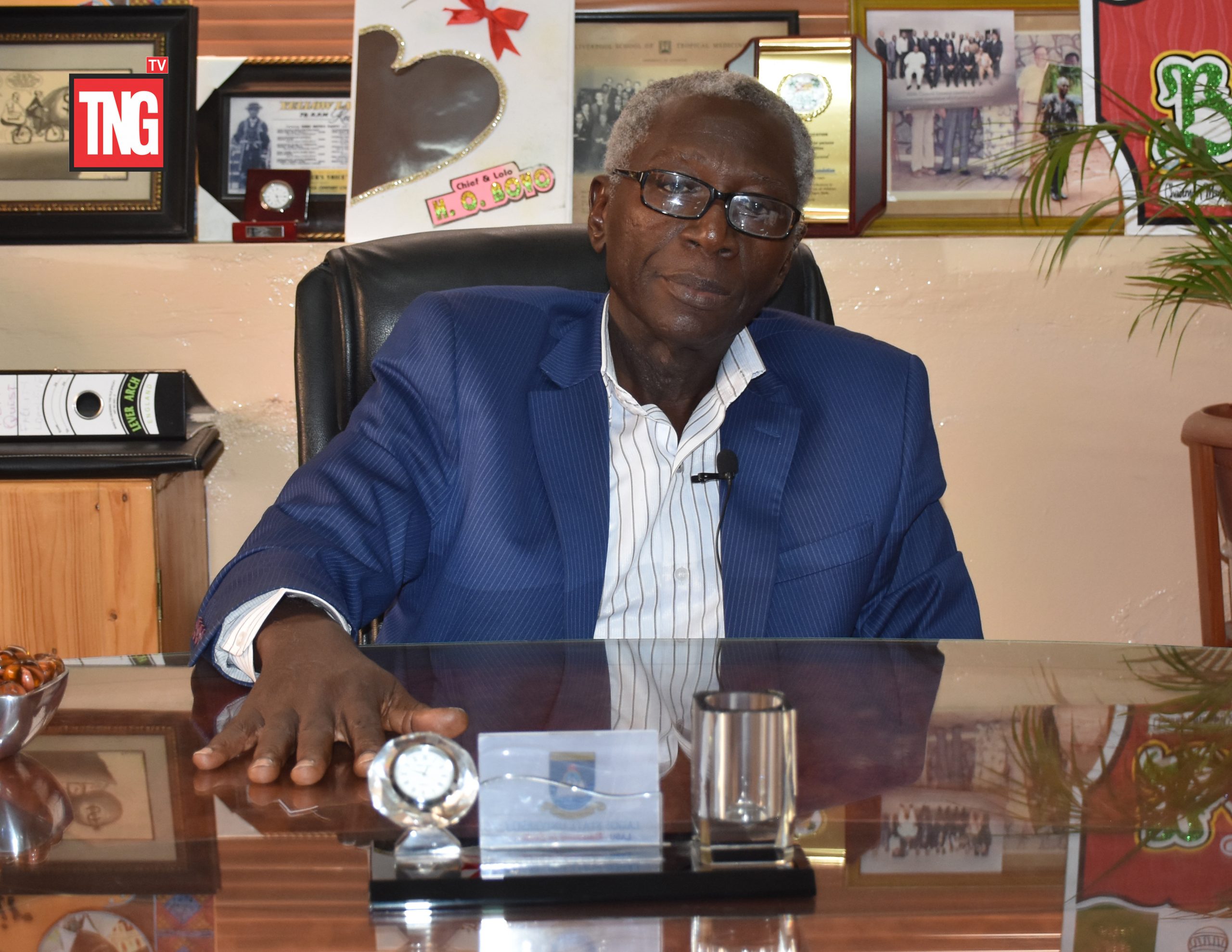By Henry Boyo
“Currently Nigeria’s out of school population is projected at 10 million while that of India is projected at 1.8 million, even though they have eight times our population. Why is it so?”
“Without adequate investments in education” (and training in entrepreneurship) “there is no way the country can combat poverty”.
(Atiku Abubakar speaking at the 2017 Africa’s Young Entrepreneurs Conference in Lagos, on Thursday 31st November).
“The youths”, they say, “are the future of any nation”; consequently, youth education and development should, therefore, be top priority for any progressive nation. A nation’s wealth diligently garnered from its peoples toil, sweat and sacrifice, will be carelessly frittered by the next generation, if youth training and education is handled with levity.
“The critical question therefore, is ‘whether or not our government’s educational policies and programmes can produce the expected quality of training and knowledge that would ensure that the Nigerian project can be successfully sustained?’. Conversely, Private investment is invariably driven by the profit motive; thus if youth education is left solely to entrepreneurs, the basic civic right to good education may only be available to that small elitist class, that can afford it. The majority of citizens, who remain helplessly, financially challenged, will regrettably become grossly uneducated and untrained and ultimately become social liabilities, as lower productivity will challenge wealth creation and ultimately predicate social insecurity nationwide.
“Notwithstanding, education seems to have been sucked in by the controversial wind of privatization of public utilities. Consequently, the number of private primary schools has gradually increased from a ratio of, say, 1:20 public schools, to what may now be a ratio of about three private schools to every government-sponsored primary establishment. The ‘graduates’ of these private primary schools have, in turn quickly provided a heavy stimulus for the parallel growth of private commercial secondary schools.
“The death knell of a predominantly government-sponsored education sector has now been sounded by the steady growth of profit-oriented, private tertiary institutions; meanwhile, the graduates of government institutions are presently, largely adjudged by both public and private sector employers, as poorly educated and an embarrassment to the institutions from whence they came! Ultimately, a huge population of jobless quarter-baked youths, maybe a signpost to increasing level of insecurity nationwide! The mind boggles at the scary impact of the disconcerting disparity of opportunities between children, from a small elitist class and the offspring of tens of millions of impoverished, largely untrained or poorly trained have-nots!
“Sadly, the whole structure of youth education has now become, as commercialized as a cash-and-carry supermarket. The most disturbing aspect of this phenomenon is the extremely high cost of private education! In a country where the highest paid civil servant earns less than N1.5m a year (2005), and the least paid civil servant earns less than N100,000 annually, indications are that primary and secondary school fees, presently exceed N50,000 for the cheapest and over N1m for the elitist cadres. Pray, how do civil servants, who send their children to private educational institutions, manage this abracadabra with their meagre salaries?” Obviously, it would certainly require a miracle for Nigerians who earn about $2/day to provide their wards with quality education.”
The preceding is the summary of an article, which was first published on 29th August 2005, in Vanguard Newspaper, when former president Obasanjo floated the idea of privatizing government’s unity secondary schools nationwide (see www.lesleba.com). Regrettably, over a decade thereafter, the chickens have predictably come home to roost.
It is undeniable that, the quality of education in public institutions has been degraded by inadequate funding by government; for example, despite UNESCO’s recommendation that 26 percent of annual budgets should be allocated to education, regrettably, however, the annual votes for education has hardly exceeded 10 percent of annual budgets. Worse still, recurrent expenditure still consumes over 65 percent of annual budgets, while late passage of budgets becomes compounded with unbridled corruption, to challenge complete or efficient implementation of the approved, relatively paltry capital allocation for education.
The ubiquitous dilapidated structures and facilities in our public educational institutions are the inevitable products of inadequate funding and misappropriation of the meagre annual allocation for education. Besides, the often protracted, seemingly cyclical industrial actions by Academic staff unions and the consequent horrid dislocation of academic calendars are fundamentally also, products of inadequate funding of public educational institutions.
Furthermore, such policies as quota system and disparate admission and selective cut-off marks in public educational institutions, undoubtedly, also constitute a monumental injustice; how does one rationalize the rejection of a candidate with excellent scores because of their state of origin, while automatic admission awaits abysmal failures from some other states? Clearly, such seemingly punitive and retrogressive policies can only dim the prospect of qualitative education and equity in most public institutions.
The decay in the education sector, invariably accelerated with the reckless depreciation of our national currency by over 95 percent between 1985 and today! The remuneration package for teachers and lecturers have predictably, become inadequate to meet the existential needs of these cradle watchers; the result of the deprivations induced by grossly devalued incomes has also led to a mass exodus and loss of some of the best brains and teachers to foreign institutions.
Expectedly, poverty has deepened as several industries and businesses have collapsed, as the naira depreciated steadily from parity to today’s N306/$1. The promotion of misguided government policies with a shamelessly contrived lack of transparency and accountability has become compounded by systemic corruption to further widen the gap between the rich and the poor. Ultimately, the dismal decay in the quality of education, has led to migration of students from more affluent homes to expensive educational institutions abroad. Conversely however, while children from such privileged homes may pay over ($50,000) N15m annually to study abroad, thousands of indigent and educationally handicapped youths constantly risk their lives in desert crossings and turbulent seas, to also seek greener pastures abroad. The heart rending stories of sorrow, tears and blood via the Agadez – Libya route to Europe has recently, painfully resonated in both local and International Media.
Ultimately, the beneficiaries of our failed educational system are primarily the sponsors of local private educational institutions, and several colleges and universities in Europe, Canada and United States. Indeed, if barely a hundred thousand Nigerian youths pay an average of $50,000 annually for tuition and living expenses abroad, this would result in a minimum outflow of about $5bn (N1.5Tn) annually with N305=$1,(i.e. well beyond, for example, the relatively paltry N605bn consolidated allocation in the 2018 budget for education). Sadly, copious adverts in the print and electronic media now readily tell a tale of an ongoing new scramble by foreign institutions, including our ECOWAS sister countries, to attract dollar paying Nigerian students, for diploma and degree programmes.
Tragically, however, if the present tradition of insecurity and economic mismanagement of public resources subsist, particularly with weaker Naira exchange rates, invariably, only a small fraction of Nigerian students, trained abroad with our scarce precious billions of dollars, will return home to add value to Nigeria’s economy after graduation. This oppressive, self flagellating outcome is fortuitously, however, a win-win event, for those first world economies, which ironically are, our shylock creditors, as well as the actual beneficiaries of the expensive sacrifice, affluent Nigerians make for their children to study abroad.
Paradoxically therefore, even though we remain regular humble recipients of International Aid Programmes, often below $1bn annually, conversely however, over $5bn may also flow out of Nigeria as education fees, which supplement the more bountiful incomes of our undeniably more accomplished benefactors.
Nevertheless, Nigerian parents, who inadvertently sponsor foreign education for their wards, may take comfort in the knowledge that their wards are less likely to be kidnapped or subjected to the horrid uncertainties and the abiding trauma of survival at home.
SAVE THE NAIRA, SAVE NIGERIANS!

